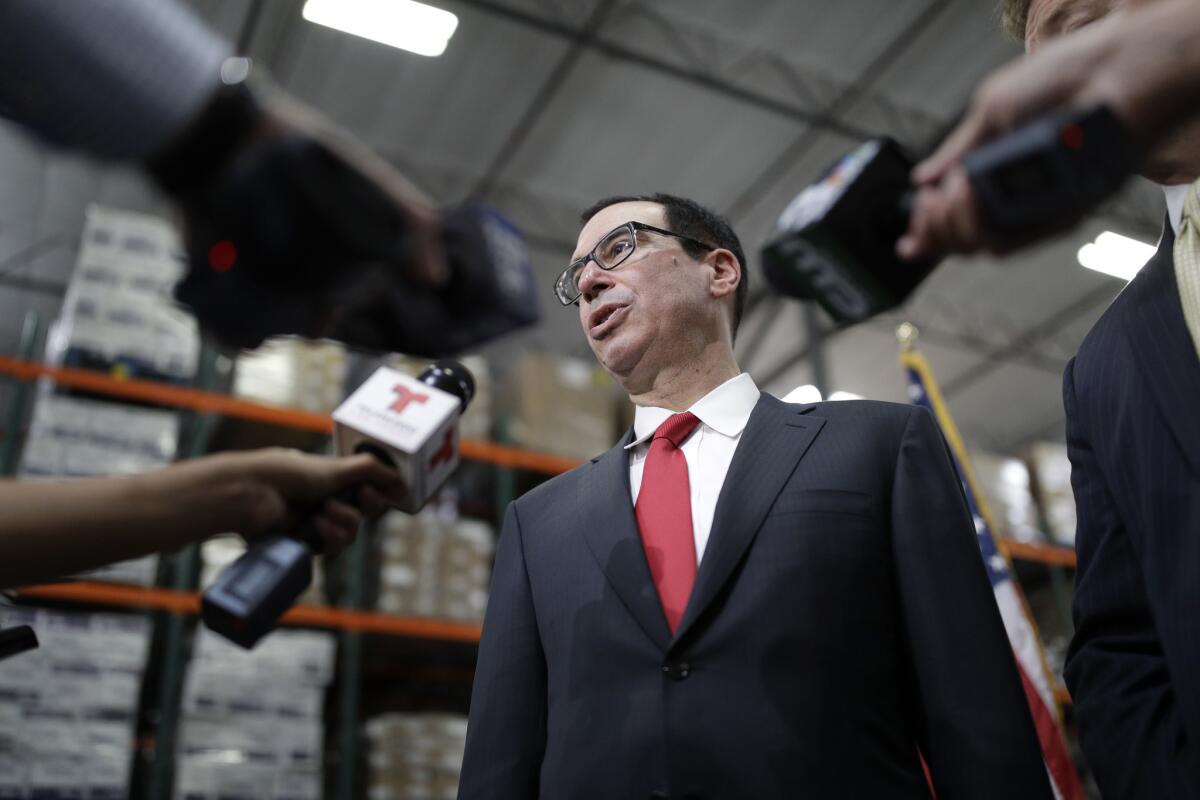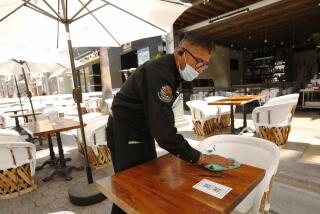A new round of PPP funds will start Monday, aimed at the smallest businesses first

- Share via
A new round of Paycheck Protection Program money will start becoming available to select lenders and borrowers on Monday, according to senior administration officials.
Community financial institutions — roughly 10% of eligible lenders — will be able to start accepting loan applications Monday for entities seeking their first PPP loans. On Wednesday, those same lenders can begin processing second-round loans for small businesses and nonprofits that have already used up their first loan, the officials said on a call with reporters Friday. The lending portal will be available for other eligible lenders and borrowers shortly thereafter.
Businesses might have to wait longer for their loan to be processed than they did in the spring. The applications will go through a series of automated checks before a loan number is issued. This could take about a day, the officials said.
Making the loans exclusively available to community lenders for several days and the additional identity checks are intended to correct some of the confusion and fraud seen during the first round in the spring. The program ran out of money within days as businesses rushed to claim the funds with few eligibility restrictions. Many very small businesses without close ties to a lender were shut out of the process and unable to get funding.
“This updated guidance enhances the PPP’s targeted relief to small businesses most impacted by COVID-19,” Treasury Secretary Steven T. Mnuchin said in a statement Friday. “We are committed to implementing this round of PPP quickly to continue supporting American small businesses and their workers.”
The officials said they do not anticipate that the system will be inundated with requests this time and that the $284 billion that Congress approved for this round won’t run out.
The updated forms to apply for the loans are not yet available, but should be posted soon, an official said.
Eligibility changes
The new pot of money sets aside $60 billion for businesses that haven’t been able to access the process so far, and it focuses on companies with 10 or fewer employees or those in low-income areas. The initiative also has $30 billion to help boost capacity among lenders active in underserved areas — including community development financial institutions, minority depository intuitions and other small lenders.
Firms that are eligible for a second loan will be capped at 300 employees, down from 500, and the maximum loan amount this time is $2 million, a decrease from $10 million. Applicants also have to prove that revenues declined at least 25% during one quarter of the pandemic, compared with the previous year.
The streamlined process for those who are applying for a loan of $150,000 or less means loan seekers just need to certify that they meet the revenue-reduction requirements at the time they apply for a loan and provide documentation of the revenue loss at a later date. The process to get the loan forgiven is also simplified.
The eligibility rules are also looser in this round. Housing cooperatives, direct marketing organizations and 501(c)(6) organizations, such as chambers of commerce and trade associations, are allowed to apply. PPP loans can be used to cover more expenses, including operations expenditures, property-damage costs, supplier costs and personal protective equipment for employees.
The influx of cash comes at a critical point, with more than 60% of businesses believing that the worst of the pandemic-related economic crisis is yet to come, according to a recent survey of 600 small-business owners by the U.S. Chamber of Commerce and insurer MetLife Inc. About half of the survey respondents said they will have to shut down within a year, unless the economy improves.
More to Read
Inside the business of entertainment
The Wide Shot brings you news, analysis and insights on everything from streaming wars to production — and what it all means for the future.
You may occasionally receive promotional content from the Los Angeles Times.










